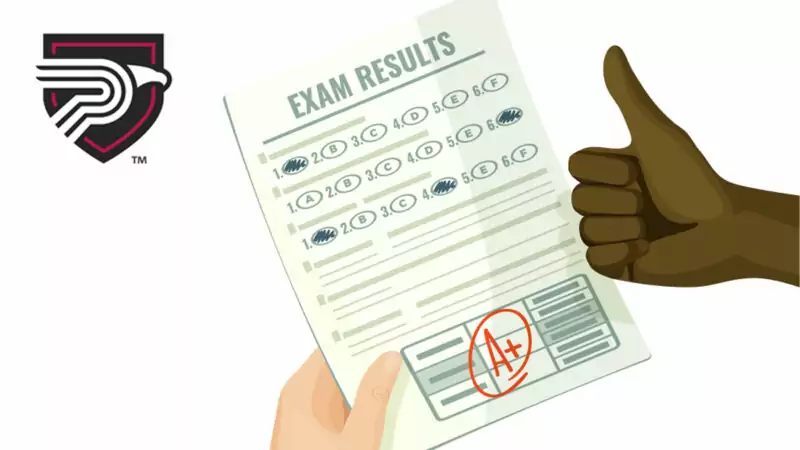Polk State resources support student success on Civic Literacy Exam

Passing the Florida Civic Literacy Exam is a newer requirement for Polk State College students to earn an associate or baccalaureate degree. The College is continuing to work to ensure that students are aware and prepared.
For degree-seeking students who enrolled in college for the first time for the Fall 2022 Semester or after, the state requires them to pass National Government (POS 2041) or American History (AMH 1010 or 1020) with a D or greater and score at least 60% on the Civic Literacy Exam. The exam is an 80-question test broken into four parts of 20 questions each, requiring 48 total correct answers.
“Our goal is to give students all the necessary tools to be successful in meeting those requirements,” said Cathryn Goble-Smith, Polk State’s Director of Civic Literacy.
Resources for students
Spearheaded by Dean of Early College and Student Engagement Yovan Reyes and Director Goble-Smith, advisors are emphasizing the requirement in their conversations with students. The College is advocating that students take the test while enrolled in one of the required courses or within 30 days of passing POS 2041, AMH 1010, or AMH 1020 to optimize their opportunity to successfully pass the exam.
“We want students to take the exam while the material is fresh in their minds,” Goble-Smith added. “We want all students to succeed and want to avoid a last-minute scramble to complete the requirements the semester before graduation.”
Students can take the exam at the Teaching Learning Computing Centers (TLCCs) on the Winter Haven or Lakeland campus or the JD Alexander Center in Lake Wales. They can schedule a time and their preferred location online.
Polk State staff members have also developed a free course and study guide in Canvas, which will continue to be improved. Goble-Smith said the College will track how students who took the free Canvas course fared on the Civic Literacy Exam. In addition to the added emphasis from advisors, students in the courses will also receive email reminders about the resources available for the exam.
Students unsure of whether they’ve passed the exam can meet with an advisor or check their degree audits in the Polk Portal. Students who need assistance with advising should email one of the following based on the first letter of their last name. For last names beginning with A through M, email onlineadvisinga@polk.edu or onlineadvisingz@polk.edu for last names beginning with N through Z.
“Students need to schedule a meeting with an advisor to ensure they are meeting the requirements and sign up to complete the Civic Literacy Exam”, Goble-Smith exclaimed. “We recommend everyone take the course available to them in Canvas. Moving forward, we hope to begin offering an in-person boot camp to further assist students in their efforts on the Florida Civic Literacy Exam.”
Additionally, Polk State faculty from diverse disciplines including English, Nursing, History, and more are working collaboratively to seek opportunities to integrate Civic Literacy content across all course areas. Faculty and staff have also had several training opportunities through the Lou Frey Institute to learn more about the Civic Literacy Exam.
What the numbers say
As of December 2024, Polk State students have passed the exam at an 80% rate on nearly 500 attempts. There is no limit to how many times students can take the test.*
Students who pass the exam in high school are exempt from having to take it again in college, but since its inception during the 2021-2022 Academic Year, high school students have struggled. The success of high school students on the exam is trending upwards as there has been an increased focus on civic education statewide, and civics standards were implemented in K-12 in 2023.
Statewide, the high school pass rate on the Florida Civic Literacy Exam sits at just 47%. In Polk County, the pass rate for high school students is 34%.
“Advisors were very concerned because, at first, students were struggling to pass this test,” Goble-Smith noted. “However, thanks to increased awareness, professional development for faculty and staff, and study opportunities provided by faculty, we are seeing an increase in students’ success. Nonetheless, students should not take the test lightly. Strong study habits are crucial to success.”
Other ways to meet Civic Literacy requirements
There are alternatives for meeting the post-secondary Civic Literacy requirements. Students who completed and passed the AP Government and Politics: United States course in high school and achieved a 3 or better on the exam are exempt from further requirements in college. Students who completed and passed the AP United States History course in high school and achieved a 4 or better on the exam are exempt from further requirements in college. Finally, if a student struggles with the Florida Civic Literacy Exam, they could potentially meet the requirements through the College Level Examination Program (CLEP) for American Government or CLEP History of the United States I.
The post-secondary Civic Literacy requirements were implemented by the Florida Legislature to ensure that students “demonstrate competency in civic literacy.” According to the Florida Department of Education, this includes an understanding of basic principles of American democracy, the U.S. Constitution, and landmark Supreme Court cases’ and founding documents’ impact on law and society.
“Polk State faculty are committed to preparing students to perform well on the exam,” Goble-Smith concluded. “They are emphasizing the importance of landmark supreme court cases, introducing students to the content of the essential documents of American democracy, and ensuring students have a robust understanding of the constitution. Some faculty have provided special study sessions for students with remarkable success and our goal is to continue to build on that success.”
*NOTE: Failures are not reflected in the data in cases where students need multiple tries to pass the test. For example, if a Polk State student passes on the fourth try, their three failures would not be reflected in the College’s overall pass rate.

